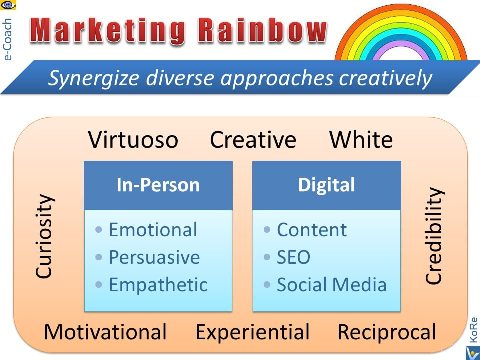| |
Experiential marketing gives customers in-depth
experiences with products in order to give them
enough information to make the purchase
decision.
It is the
difference between telling people about features
or benefits and letting them experience it and
get their own "a-ha!" event. |
|
Benefits
Greater and deeper
impact on the prospective customer.
Increased
effectiveness of selling.
Cost saving
relative to traditional marketing techniques.
|
|
| |
"I hear and I
forget. I see and I remember. I do and I
understand," said
Confucius.
Experiential
marketing refers to actual consumer experiences
or interactions with products for the purpose of
driving the sale of that product. |
|
 |
| |
|
The best way to communicate to
potential buyers the
value of a product is to let
them experience it. Creative
experiential marketing, when
applied correctly, will lead to
greater impact for the consumer,
increased effectiveness for the
advertiser, and even cost
savings relative to traditional
advertising or marketing
techniques.
|
|
|
| |
|
Break Down the Barriers
"The way life should work is
that
innovative products are easy
to sell. Dream on. Life isn't
fair. Indeed, the more
innovative, the more barriers
the status quo will erect in
your way. Entrepreneurs should
understand this upfront and not
get flustered when market
acceptance comes slowly. I've
found that the best way to break
barriers is enable people to
test drive your innovation:
download your software, take
home your hardware, whatever it
takes," writes Guy Kawasaki, the
author of The Art of
Innovation: 9 Truths.
|
|
|
|
Icebreaking Marketing
▪
Woodscrew
Marketing |
| |
|
Let people experience features,
benefits and unseen intrinsic
value of your new product or
service.
|
|
|
|
 |
|
|
|
Given the commoditized status and lack of
differentiation of many hotel chains like
Hampton Inn, Fairfield Inn, Red Roof Inn, etc.,
imagine if a particular chain partnered with
IKEA to decorate their rooms with simple, clean
and comfortable bedroom furniture. This fact
alone would give that hotel chain a significant
point of differentiation. The hotel chain also
gets the economic benefit of furniture at prices
that are even better than wholesale prices on
generic furniture. IKEA gets significant
"consumption-experience level" exposure to
target customers at a fraction of the expense of
TV ads. Consumers get to experience IKEA
furniture "in action" which undoubtedly would
give them enough first-hand experience
information to make future purchase decisions.
Finally, some creative "consumer insights
research" opportunities can even be built in,
such as allowing visitors to select from among
differently decorated IKEA hotel rooms and
tracking such decisions to gather which items
are most popular or even how to make IKEA's
in-store bedroom sets more appealing. In
summary, both the hotel and IKEA achieve
"experiential marketing" which drives greater
marketing effectiveness (i.e. hotel chain
differentiates themselves from others; IKEA lets
customers actually experience their products
prior to going to a store), delivers a more
impactful experience to customers, and even
reduces costs for both parties.
|
|
|
|